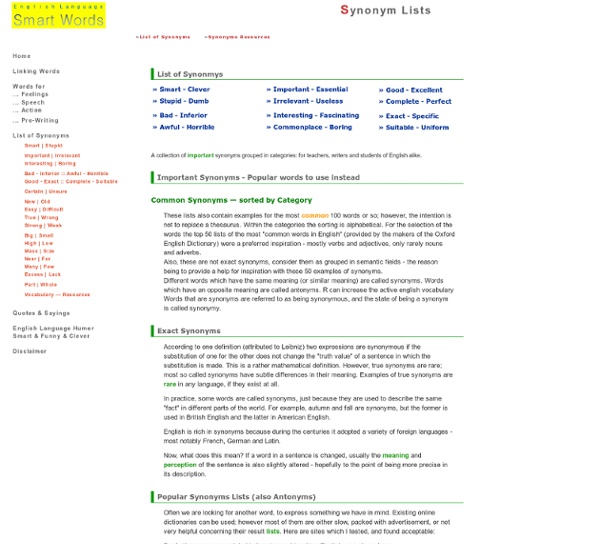The twelve tense system in English - an overview
Not everyone agrees on what comprises a tense. It is common to talk about present, past and future tenses, but some people think a tense must involve inflection (or morphological change), that is a change in the form of the verb itself, as in Latin and many European languages, so they recognise only two tenses - past and present. On the other hand, one early grammar book talked of six tenses. In EFL/ESL we usually work on the basis that a tense combines a time (present, past or future) with an aspect (simple, continuous, perfect simple or perfect continuous). Although I will be talking a bit about individual tenses, my main aim here is to show how, in this way of looking at things, all twelve tenses fit into a neat, easy to understand scheme. What are tenses Some dictionaries define tenses as simply being about time: any of the forms of a verb that may be used to show the time of the action or state expressed by the verb (Oxford Advanced Learner's Dictionary) Others add a bit more:
Free English Grammar Lessons and Tests
40+ Tips for Grammar and Punctuation
After all these years you finally have the courage and opportunity to write the email announcing that you and you alone have single handedly saved the company from utter disaster. You’re excited, you type it, you spell check it, and you hit send.Everything is great except that your gold star memo has dangling modifiers, double negatives and run-on sentences colliding with each other. Now I am no grammar whiz but I know a good resource when I see it. Purdue University maintains an purdue.edu/" target="_blank">online writing lab and I spent some time digging through it. Originally the goal was to grab some good tips that would help me out at work and on this site, but there is simply too much not to share. Learn and enjoy! • A or An? • Adjective or Adverb? • Adjectives with Countable and Uncountable Nouns • Using Articles ( A/An/The ): with 2 exercises and answer keys Nouns • A Little Help with Capitals • Count and NonCount Nouns (with Articles and Adjectives): with exercise and answer key Commas
20 Common Grammar Mistakes
I’ve edited a monthly magazine for more than six years, and it’s a job that’s come with more frustration than reward. If there’s one thing I am grateful for — and it sure isn’t the pay — it’s that my work has allowed endless time to hone my craft to Louis Skolnick levels of grammar geekery. As someone who slings red ink for a living, let me tell you: grammar is an ultra-micro component in the larger picture; it lies somewhere in the final steps of the editing trail; and as such it’s an overrated quasi-irrelevancy in the creative process, perpetuated into importance primarily by bitter nerds who accumulate tweed jackets and crippling inferiority complexes. But experience has also taught me that readers, for better or worse, will approach your work with a jaundiced eye and an itch to judge. While your grammar shouldn’t be a reflection of your creative powers or writing abilities, let’s face it — it usually is. Who and Whom This one opens a big can of worms. Which and That Lay and Lie Moot Nor
Learn English Online, Free English Lessons, English Classes, Business English
100% Free English Lessons No timetables, no fees. Improve your English grammar, speaking, pronunciation, vocabulary, reading, listening and writing. Start learning English now Try our 30-minute example English lesson See how we teach English. Try now Award-winning English training Englishlink is one of the best English education programs in the world...100% free for you! English training awards Moving to Australia Migrating to Australia for school or work? Moving to Australia Moving to Canada Are you going to Canada to live, work, or study? Moving to Canada Become an Educational Sponsor Give the gift of an English education - make your brand an educational sponsor nationally or globally. Promote your brand



